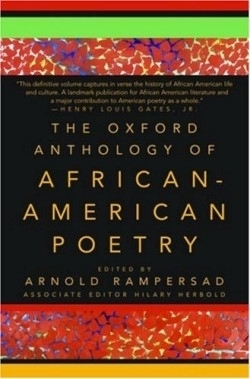Oxford Anthology of African American Poetry
- 2005 INDIES Winner
- Gold, Anthologies (Adult Nonfiction)
In this impressive collection of 274 poems, works by Claude McKay, Countee Cullen, Margaret Walker, and Langston Hughes mingle with those of Audre Lorde, Yusef Komunyakaa, Etheridge Knight, Joanne Gabbin, and Rita Dove to construct a new canon of African-American poetry that stretches from the eighteenth century’s Phillis Wheatley to the contemporary “third stream” or “mfa poets” of the 1990s. Lucille Clifton and Gwendolyn Brooks appear side by side, and even the controversial Amiri Baraka shares a spot in the sunlight. Rather than including poems based on historical importance or political message, the editor provides readers with a thematic structure that encourages meditative readings about the relationship between African-American poets and canonical European and American poetry.
The book is organized around the themes of Africa, slavery, the American South, family, love, religion, music, and death. Black men, women, and children each have their own substantive sections. Rampersad addresses the sometimes bewildering organization of each section in his erudite introduction to the book, acknowledging that “African-American poetry has had an orderly history” that the present volume ignores. This choice succeeds because it encourages readers to consider each poem on its own merits rather than as merely another moment in a familiar chronological narrative. African-American poetry, he writes, “was created on the whole not by naïve men and women but by artists who knew something of the tradition of poetry in English and wished to augment it by including their people as subjects.”
The anthology emphasizes poets of the Black Arts movement, which flourished between 1965 and 1976. Literary historian Kalamu ya Salaam writes that it was the “only American literary movement to advance ‘social engagement’ as a sine qua non of its aesthetic.” Although the movement can rightly be criticized for being sexist, homophobic, and militantly anti-white, it created an activist Black identity dedicated to questioning and defying white power structures. “Post-Black Arts” poets tended to reject the overt politicizing of their predecessors in favor of more mainstream, universal messages. Despite criticism that this change represented a sell-out, it also contributed to their burgeoning acceptance into university curricula. The late-twentieth-century Cave Canem group, which includes Toi Derricotte, exemplifies much of the third stream poets because of its academic credentials and orientation.
The editor’s previous books include The Art and Imagination of W. E. B. Du Bois, and The Life of Langston Hughes. He co-authored Days of Grace: A Memoir with Arthur Ashe, the tennis legend, and has also edited a book of Richard Wright’s collected works. This volume will be an invaluable addition to any library, because it so amply demonstrates the richness and depth of three centuries of America’s most talented black writers.
Reviewed by
Elizabeth Breau
Disclosure: This article is not an endorsement, but a review. The publisher of this book provided free copies of the book to have their book reviewed by a professional reviewer. No fee was paid by the publisher for this review. Foreword Reviews only recommends books that we love. Foreword Magazine, Inc. is disclosing this in accordance with the Federal Trade Commission’s 16 CFR, Part 255.

